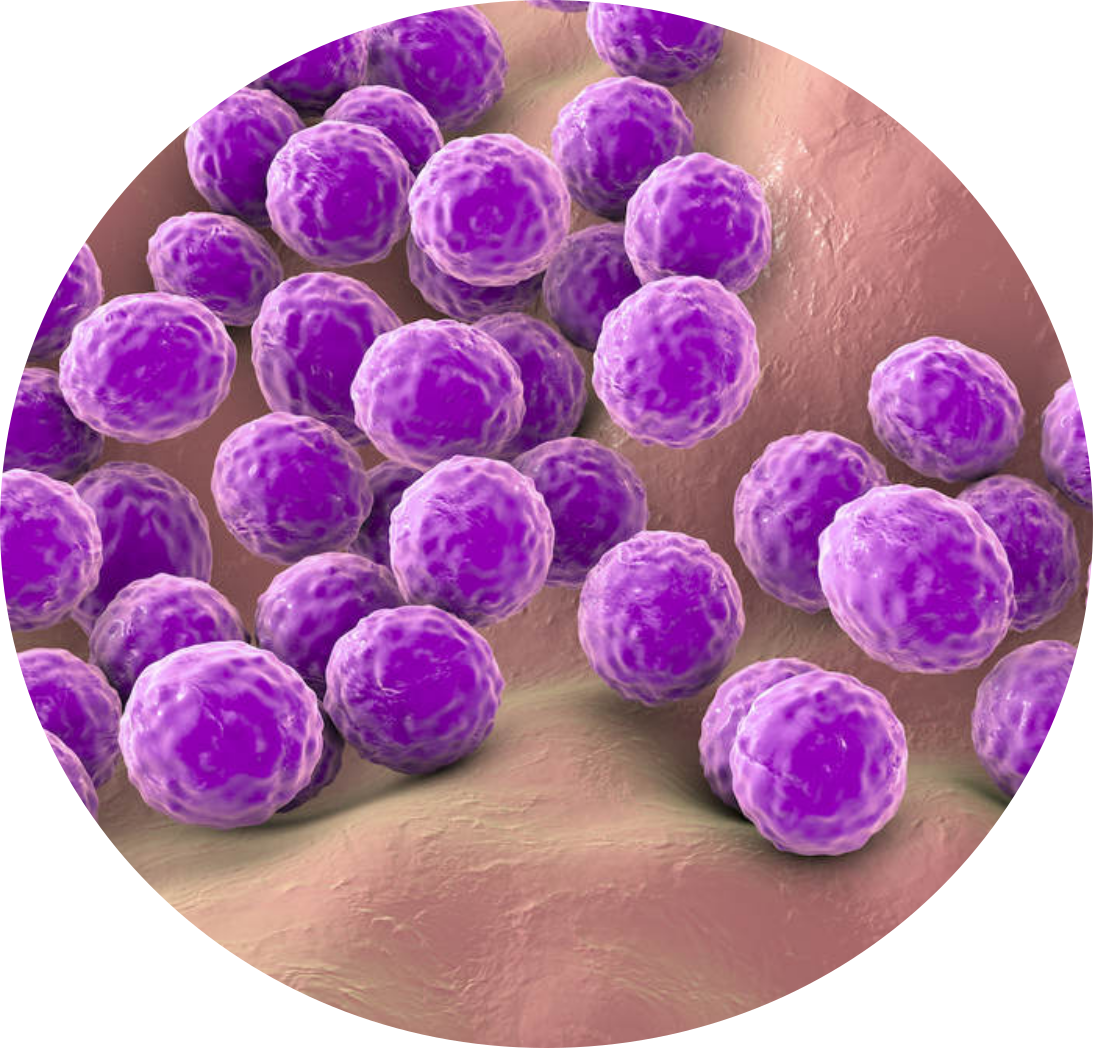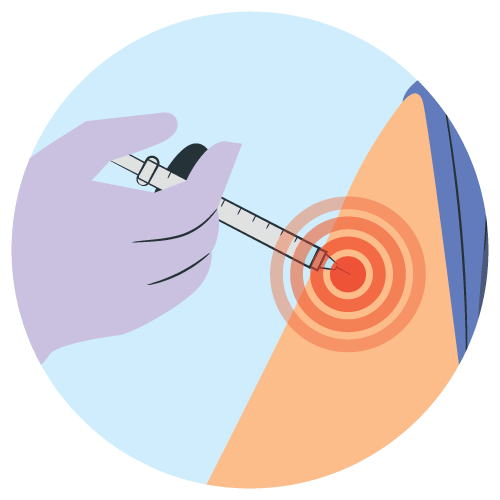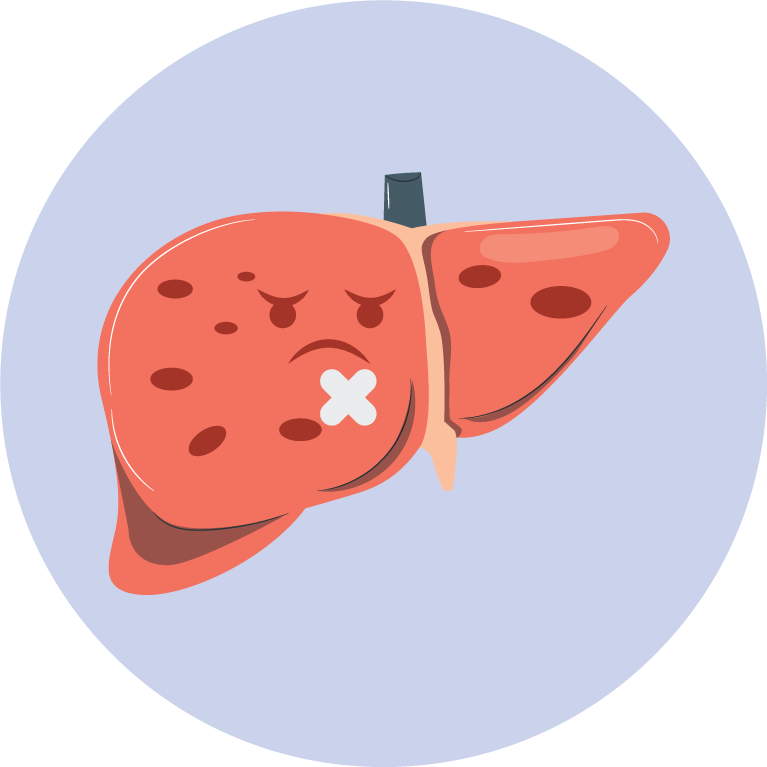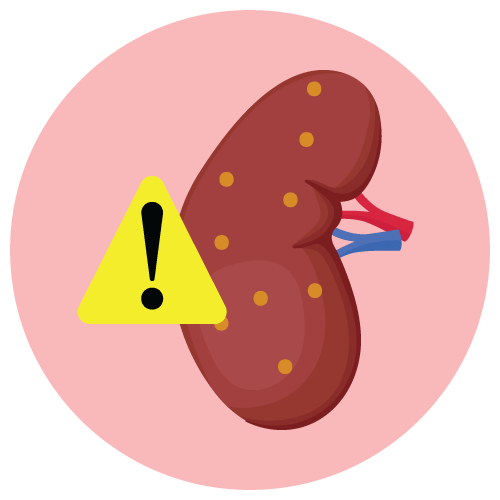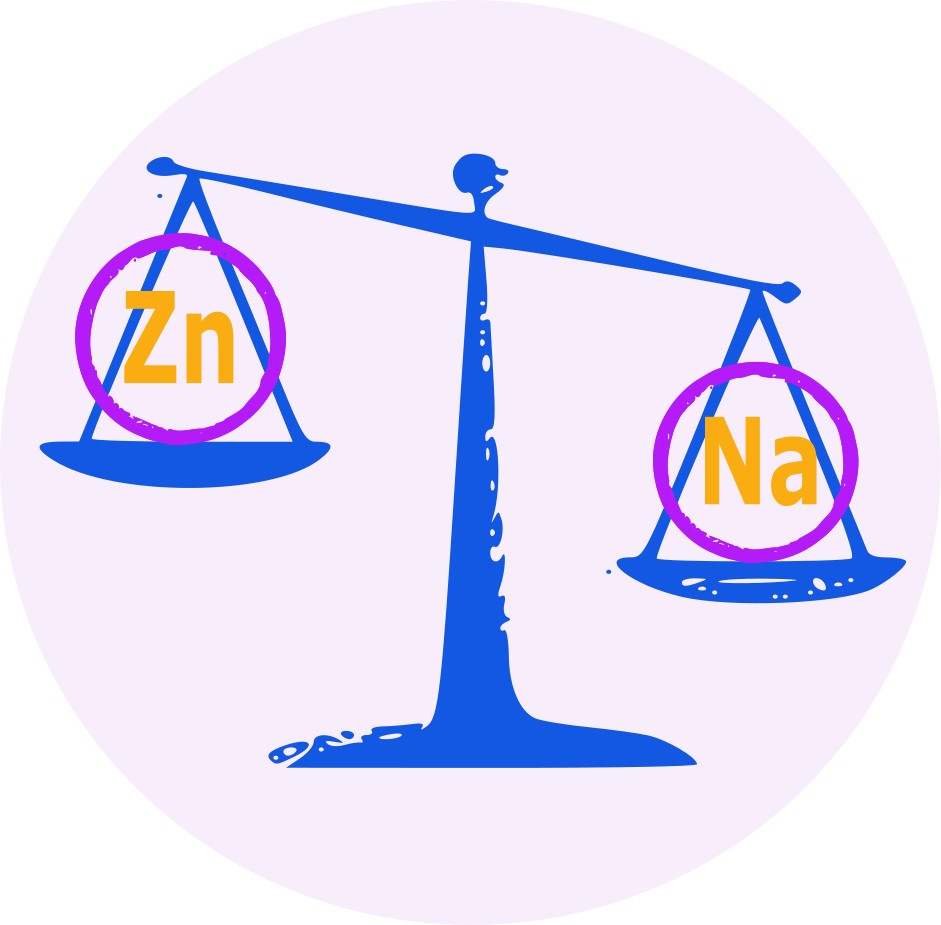| Name | Teicoplanin |
| Classes |
Antiinfective Agent Antibiotic |
| Diseases |
Infectious Disease Non-Cardiac Bacteraemia Osteomyelitis Septic Arthritis |
Teicoplanin
Teicoplanin is a glycopeptide antibiotic that belongs to the class of lipoglycopeptides. It exerts its bactericidal activity by inhibiting bacterial cell wall synthesis through binding to D-alanyl-D-alanine residues of the peptidoglycan chains, which inhibits the formation of the glycan chains that constitute the bacterial cell wall. This leads to the lysis of bacterial cells and ultimately to their death.
Teicoplanin is indicated for the treatment of serious infections caused by Gram-positive bacteria, including:
- Methicillin-resistant Staphylococcus aureus (MRSA)
- Methicillin-susceptible Staphylococcus aureus (MSSA)
- Streptococcus pyogenes
- Streptococcus pneumoniae
- Enterococcus faecalis
- Coagulase-negative staphylococci
Teicoplanin is administered by intravenous injection or infusion. The dose and duration of treatment depend on the severity of the infection, the patient's age, weight, and renal function. The recommended dose for adults and children over 12 years old is:
- For serious infections: 6 to 12 mg/kg/day in 2 divided doses, with a maximum daily dose of 800 mg.
- For prophylaxis: 400 mg once daily for up to 5 days before surgery.
The dose for children under 12 years old is calculated based on their body weight.
The most common adverse reactions associated with teicoplanin are:
- Rash and other allergic reactions
- Nausea and vomiting
- Diarrhea
- Injection site pain and inflammation
- Elevation of liver enzymes
- Before starting teicoplanin treatment, patients should be evaluated for a history of hypersensitivity reactions to glycopeptide antibiotics. In case of an allergic reaction, the drug should be discontinued immediately, and appropriate treatment should be initiated.
- Teicoplanin should be used with caution in patients with renal impairment or electrolyte disturbances, as the drug can accumulate in these patients and cause further kidney damage or worsen electrolyte imbalances.
- Teicoplanin may also interact with other medications, including anticoagulants and other antibiotics. Therefore, patients receiving teicoplanin should be closely monitored for signs of bleeding or other adverse effects.
Contraindication
Teicoplanin is contraindicated in patients with a history of hypersensitivity to teicoplanin or other glycopeptide antibiotics such as-
- Vancomycin
- Telavancin
None known.
Teicoplanin should be avoided in patients with a history of severe renal impairment or electrolyte imbalances.
 Bangla
Bangla English
English